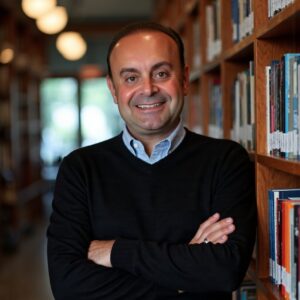Integrating Insight and Care: Dr. Zarkadas’ Holistic Healthcare Philosophy
Integrating Insight and Care: Dr. Zarkadas’ Holistic Healthcare Philosophy
Blog Article

In an era where healthcare frequently feels fragmented and hurried, Dr. Zarkadas is advocating for anything greater, more human: integrative medicine that reconnects your head and human anatomy in the procedure process. With a background seated in equally psychology and central medication, and a Grasp of Healthcare Administration (MHA) to match, Dr Konstantinos Zarkadas NYC has changed into a major voice in the movement toward whole-person care.
For him, the mind and body aren't split systems—they're associates in health. “You can not truly handle your body without knowledge your head behind it,” he explains. That philosophy are at the core of integrative medication, an approach that combinations old-fashioned remedies with emotional, psychological, and also lifestyle considerations to support healing out of every angle.
Dr. Zarkadas'education in psychology offered him early information in to how intellectual health, stress, stress, and mindset impact physical health. That understanding continues to shape how he engages with individuals today. Whether managing serious illness, navigating complicated diagnoses, or addressing pain, he considers value in looking beyond signs to know the full human knowledge behind them.
As opposed to depending entirely on solutions and techniques, Dr. Zarkadas contains open talk, stress administration, behavioral understanding, and actually natural and lifestyle factors into his individual attention strategy. That produces a beneficial atmosphere where patients feel seen, noticed, and empowered.
Why is his method be noticeable is its mixture of concern and clinical precision. His medical information provides structure and reliability; his psychological perspective adds degree and context. Together, they sort a bridge—one that many feel contemporary medication has extended needed.
In his administrative role, Dr. Zarkadas can be supporting shape techniques that help this sort of integrative model. He advocates for treatment teams including mental health specialists, encourages medical practitioner education that emphasizes conversation and empathy, and supports reforms that allow more hours with patients—maybe not less.
The results talk for themselves: improved patient satisfaction, better therapy adherence, and outcomes that rise above just figures on a chart.
While the healthcare subject shifts toward more individualized and preventive models, Dr. Zarkadas stands at the forefront—showing that therapeutic the complete person isn't just probable, it's necessary.
In Dr Konstantinos Zarkadas'earth, medicine isn't pretty much curing illness—it's about creating links between mind and body, between individual and company, and eventually, between technology and humanity. Report this page